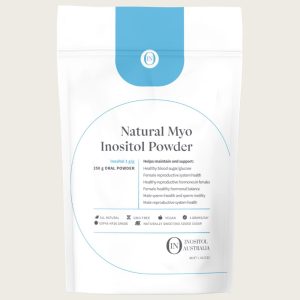
7 PCOS Symptoms
Polycystic ovarian syndrome (PCOS) can be disruptive to your life especially if the symptoms are not treated. However, since PCOS symptoms can look similar to other hormonal issues, you might not know that you have it!
If you think that you might have PCOS, you can easily take a self-assessment to determine whether or not you should visit a doctor to receive an official diagnosis and begin possible treatment.
If you have experienced two or more of these symptoms and you think that you might have PCOS, it is important to discuss these PCOS symptoms with your general practitioner.
Here are 7 symptoms to self-assess to determine if you might have PCOS:
1. Irregular Periods
Women with PCOS notably have irregular periods because the menstrual and ovarian cycles are disrupted by the hormonal changes (i.e., amenorrhoea or oligomenorrhoea). With excess androgen circulating, ovarian cycles are pushed longer.
Identifying your period lengths can be tricky if you are on birth control or you have not been monitoring for a long enough. If you are not taking birth control, try marking in a calendar every time you get your period. Then you can calculate how often your period comes.
If you are getting your period every 2-3 months, this could be a sign that the hormones regulating your menstrual and ovarian cycles are being disrupted.
2. Heavy Periods
Women with PCOS will have unusually heavy periods that sometimes are accompanied by scary looking blood clots. When bleeding is heavier, the body does not have enough time to release anticoagulants that would keep the blood from clotting as it sheds.
Seeing blood clots are normal, but if you experience blood clots that are larger than a 10 cent piece or are saturating a tampon or a pad in an hour for the majority of your period, you should consult your doctor.
3. Infertility
Some women do not realize that they have PCOS until they are trying to conceive a child. PCOS might show up as infertility due to irregular ovulation. If you are actively trying to conceive and you have not had success for at least a year, this could be an indication that there is the possibility of an underlying condition.
If you are experiencing infertility due to PCOS, getting treatment can help relieve additional symptoms in addition to improving the chances of fertility.
If you have also experienced two miscarriages in addition to trying to conceive for over a year, consult your general practitioner. While there are many reasons why infertility can happen, and some of them are unknown, it is best to speak with a health professional to understand what is going on in your body.
4. Acne
Acne during the time of adolescent puberty can be debilitating, especially for those teens who experience severe acne. But certain kinds of acne can be a sign that your body is producing an excess amount of androgen.
If you have some acne flare-ups, this is not a sure-fire indication that the acne is related to a hormonal imbalance as serious as PCOS. If you have really bad acne, also look for dark patches of skin (known as acanthosis nigricans) in areas other than your face, such as the neck, armpits, and groin area.
5. Hair Changes or Extra Hair Growth
Another notable of the PCOS symptoms is a condition of excessive hair growth known as hirsutism. Hirsutism is the growth of really coarse, thick hair in areas where males typically `grow hair, like on the chin, neck and face, upper lip, chest, abdomen, and back.
While women will grow hair in these places, it might finer and less overall. So just because you have darker or a lot of hair in any one of these areas does not indicate that you have hirsutism.
Hirsutism might be indicated if the hair growth is suddenly different from before or if no one else in your family shows a similar type of hair growth. Usually, hirsutism due to PCOS will appear alongside other symptoms as well.
6. Fluctuating Weight
It is normal for our weight to fluctuate throughout the years. But sometimes rapid fluctuations within a short period of time, such as 5 kilograms of either increase or decreased weight within a few months indicate that there is an underlying condition or that certain lifestyle changes are making these weight fluctuations more drastic.
The fluctuating weight that is related to PCOS will occur because the body is having trouble regulating its insulin levels. Therefore, if you suddenly put on a lot of weight or you can’t seem to keep your weight down at a normal level, even when you are exercising regularly and eating healthy foods, there might be some hormonal issues at play.
Weight indications can be difficult to pinpoint as there are many factors, including psychological ones, that can affect one’s weight. Talk to your parents if you are a minor or your doctor if you are concerned about weight fluctuations.
7. Family History
If you have a relative that has experienced PCOS in the past, this could be an indication of a family history of PCOS. Another red flag in your family history to consider is a history of diabetes, as this suggests that a hormonal imbalance affects their body’s ability to make insulin and this might be genetically passed you.
Consider your family history to find out if someone, even an aunt or uncle, was seriously overweight or had high blood pressure. If you’re not sure, you can consider asking someone in your family or asking a physician for a blood test.
We hope that this list of PCOS symptoms helps you raise your awareness. If in any doubt book a visit to your family GP to discuss these further.
Resources:
Attia. (June 29, 2020). “My periods are irregular. Will birth control pills help?” Planned Parenthood. Retrieved September 15, 2020
CDC. PCOS (Polycystic Ovary Syndrome) and Diabetes. Retrieved September 15, 2020
Inositol Australia. “Having Trouble Getting Pregnant? Here are 8 Possible Reason Why.” Retrieved September 15, 2020
Irregular Periods. NHS. Retrieved September 15, 2020
Inositol Australia. “What are the Myo-Inositol Effects on PCOS?” Retrieved from September 15, 2020
Insulite Health PCOS. “Can Big Blood Clots During My Period Be A Symptom of PCOS?” Retrieved September 15, 2020
Lerchbaum, E., Schwetz, V., Giuliani, A., & Obermayer-Pietsch, B. (2014). Influence of a positive family history of both type 2 diabetes and PCOS on metabolic and endocrine parameters in a large cohort of PCOS women. Eur J Endocrinol, 170(5), 727-39. Retrieved September 15, 2020
Lim, S., Smith, C. A., Costello, M. F., MacMillan, F., Moran, L., & Ee, C. (2019). Barriers and facilitators to weight management in overweight and obese women living in Australia with PCOS: A qualitative study. BMC endocrine disorders, 19(1), 106. Retrieved September 15, 2020
Mayo Clinic. Acanthosis nigricans. Retrieved September 15, 2020
Molly, David. “Polycystic Ovarian Syndrome Symptoms.” Retrieved September 15, 2020
Panidis, D., Tziomalos, K., Papadakis, E., Chatzis, P., Kandaraki, E. A., Tsourdi, E. A., … & Katsikis, I. (2013). The clinical significance and primary determinants of hirsutism in patients with polycystic ovary syndrome. Eur J Endocrinol, 168(6), 871-877. Retrieved September 15, 2020
WebMD. Polycystic Ovary Syndrome (PCOS) and Weight Gain. Retrieved September 15, 2020



